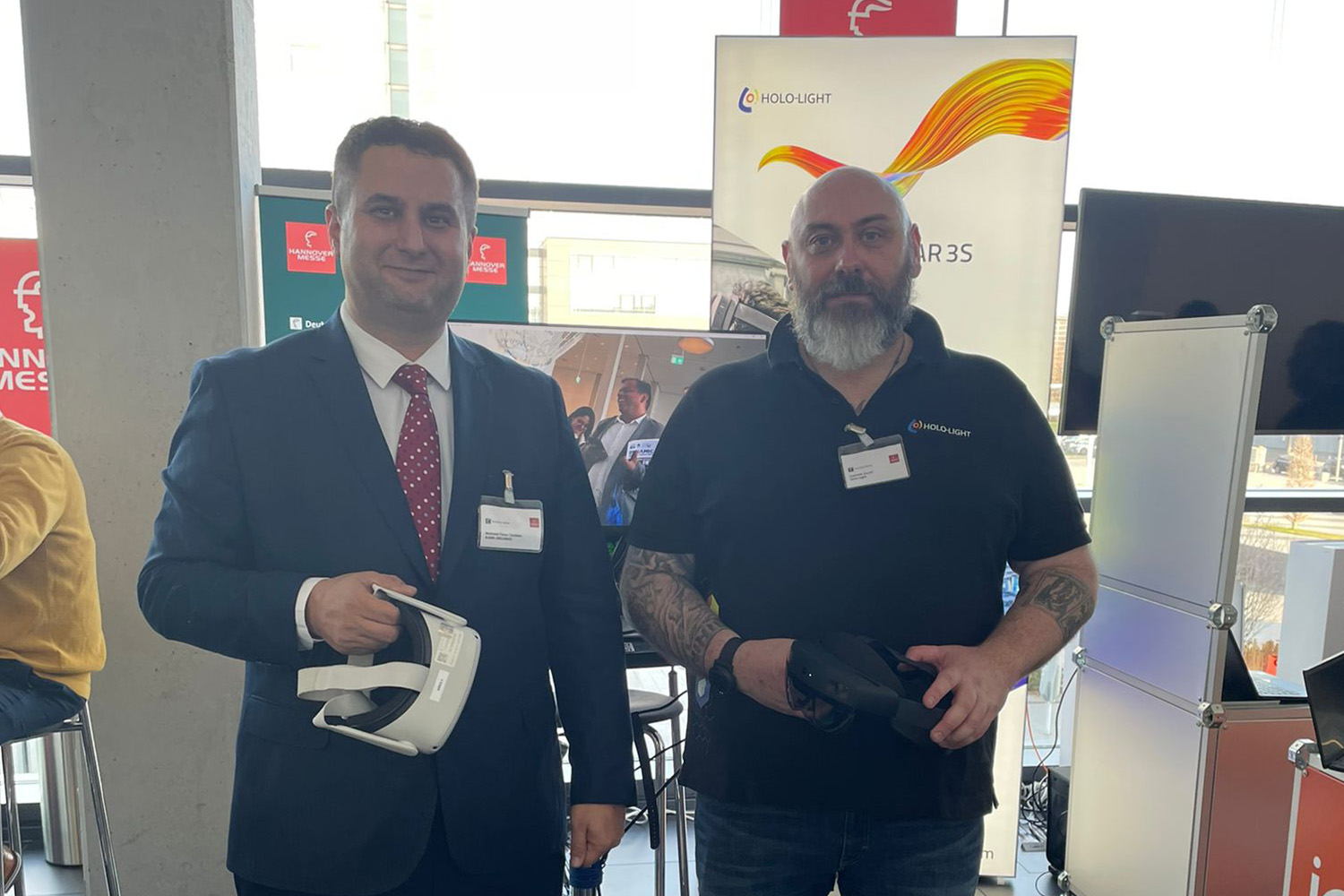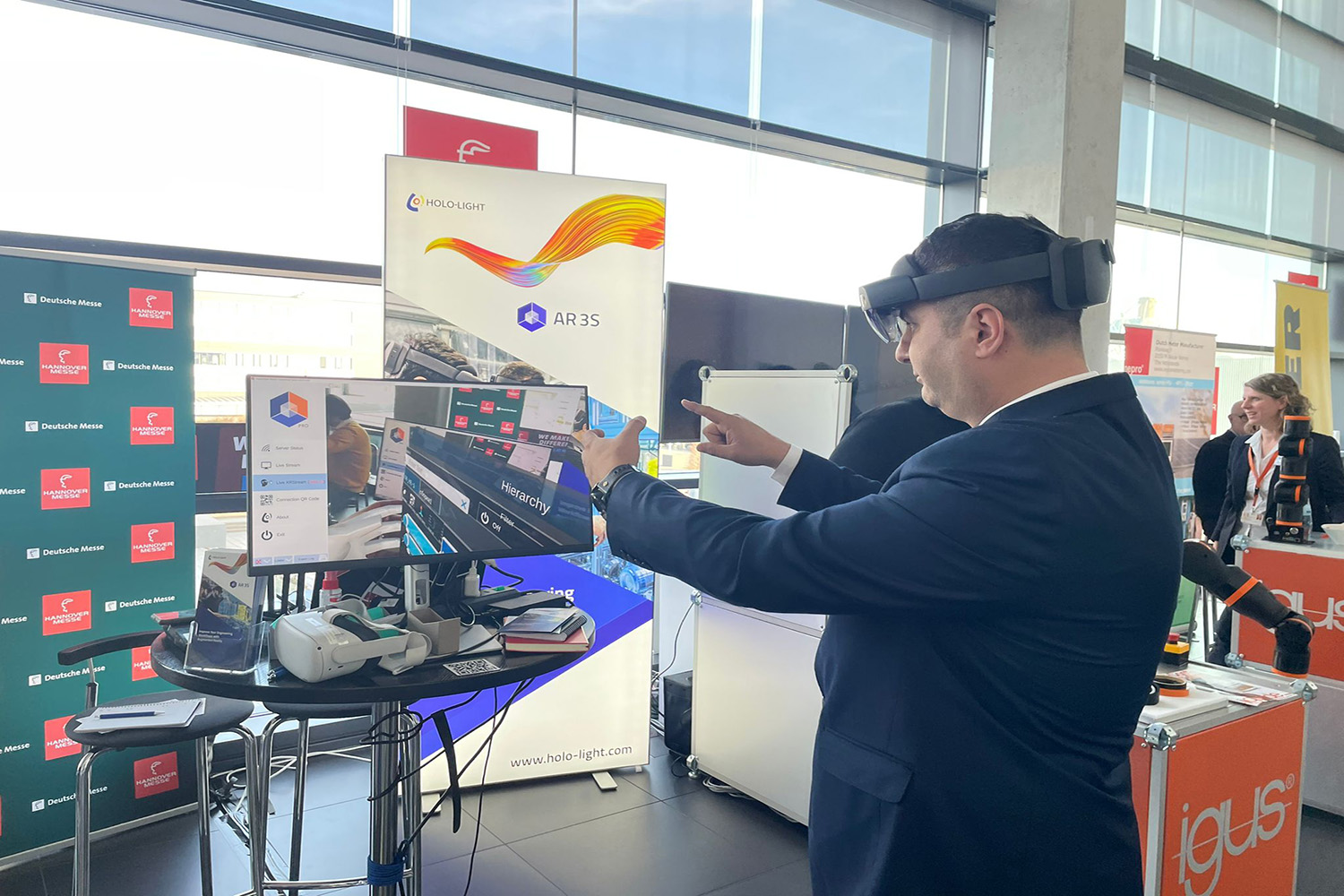

The AR3S model, which I had the opportunity to experience at the Hannover Messe Preview 2023 organization, promises satisfaction to users with its stable operation and AR and VR interaction in remote maintenance and control of machinery and equipment.
XR expert Holo-Light will showcase the new, enhanced version of its Augmented Reality Engineering Space AR3S at Hannover Messe 2023, April 17–21, in hall 15, booth F71. In exclusive demos, visitors will experience how immersive technologies simplify and accelerate product development and how to collaborate across Augmented Reality (AR) and Virtual Reality (VR). Holo-Light’s AR3S is the first professional Industrial Metaverse application worldwide to enable interaction and a multi-user mode between AR and VR.
Engineers and industrial designers use AR3S to visualize complex, full-size 3D CAD models, merge them with physical components, and evaluate as well as interact with them in the physical environment. With AR3S, everyone involved in the process of product development can be included in the collaboration process and work on the same digital twin, in real time, and regardless of location.
The latest version of AR3S offers even more flexibility and scalability. In addition to AR devices such as Microsoft HoloLens 2, AR3S now also supports VR devices such as Meta Quest 2 and enables seamless interaction between the two. With features from cutting planes and X-Ray mode to collision detection and markings directly on the object, AR3S revolutionizes collaboration and collective decision making in the digital space, in AR and VR combined or in AR alone.
Benefits of AR3S in a nutshell
AR3S enables engineers and industrial designers to realize concept evaluations faster, detect design flaws early on, and significantly accelerate the process from planning to design to implementation. Aside from shortening the time-to-market, AR3S helps to minimize the resources needed for prototype production and makes shipping of components obsolete until a very late stage. What’s more, it aids in keeping travel by team members to a minimum, thus reducing costs as well as the carbon footprint.
With AR3S, engineers and industrial designers break through all boundaries. Thanks to streaming, there are no limits to the level of detail, size of data, and polygon count of the 3D holograms displayed - and thanks to AR and VR support, there are no limitations when choosing an XR device. Furthermore, AR3S runs both in a local network or on the cloud. AR3S is thus suitable for countless industrial use cases - such as prototyping, design reviews, factory simulations or immersive trainings - as well as for teams and companies of any size and geographical distribution. Companies across various industries, such as BMW, Bilfinger and Danfoss Climate Solutions, are already optimizing their workflows with AR3S.


